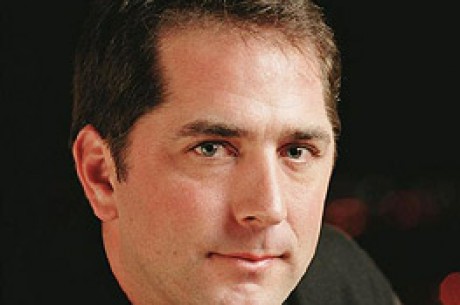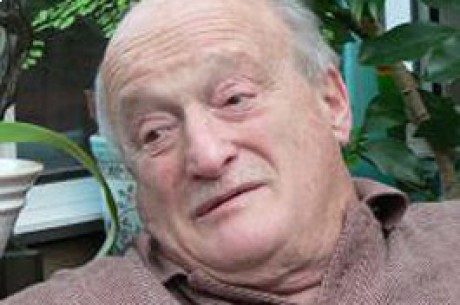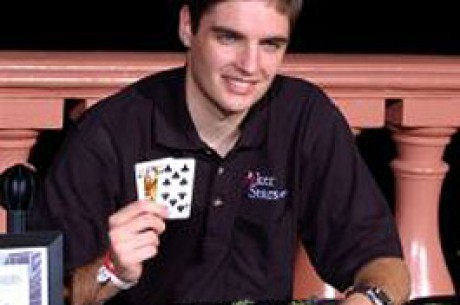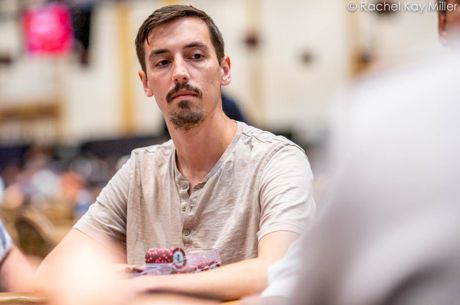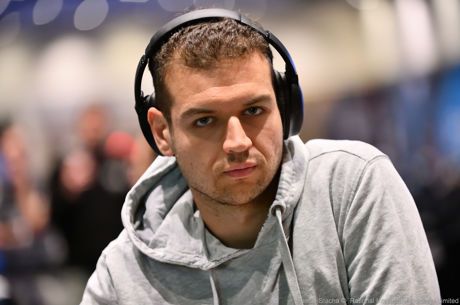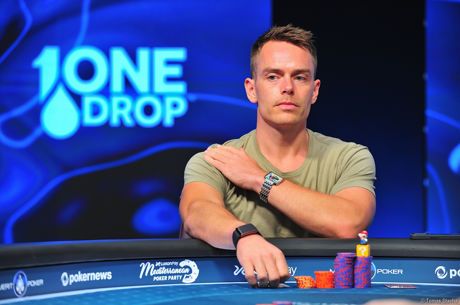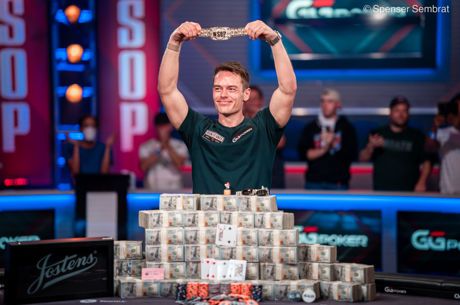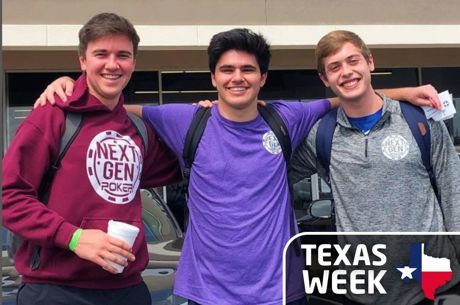Reviewing 'The Big Game' With Michael Craig
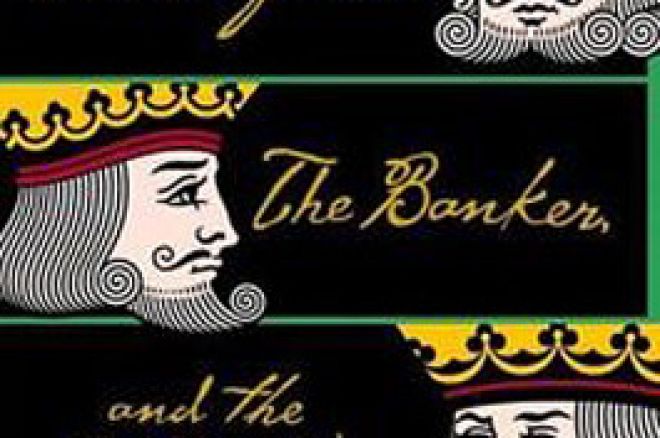
The stories and legends that surrounded "The Big Game," the series of heads up battles between banker Andy Beal and a conglomerate of professionals led by Doyle Brunson that banded together with their talent and their money, back between 2001 and 2004 have almost been as numerous as the zeroes that were in the bankrolls of the participants. In his outstanding review of those confrontations in "The Professor, The Banker And The Suicide King," author Michael Craig recounted the legendary meetings and was able to answer many of the questions that surrounded the event. When the series was renewed in February of this year, instead of sitting on the outside looking in, Craig was table-side for all of the action during the often fierce competition.
His recount of the struggles of Beal against the combined firepower of the best in professional poker will be told in an article in the April issue of Bluff Magazine. In "The Banker, The Boss, The Junkman and The Warrior Queen - The Return Of The Richest Poker Game Of All Time," Michael is able to display the single-mindedness to excellence that Beal brought to the tables as well as the resolve of the professionals to derail the billionaire's train. When we talked about the experience recently, Michael was able to give some more insights into the renewal of "The Big Game" and the exhaustive lengths he went through to document it.
PN: First off, it's a credit to you to have documented everything that happened during the renewal of "The Big Game". Was it as exhausting for you as it was for Mr. Beal and the pros?
MC: Oh, definitely yes! I had to sit there every draining day, then work another eight hours writing pieces for the article. I usually would have to go from being involved in the entirety of a particular day's actions to, later that evening, writing about the events that had occurred in previous days. It was very difficult to do this, even more so than if I had been writing about the action of a day when it happened. It's a wonder I didn't toss in the Gettysburg Address or my seventh grade Australia report by accident!
PN: What I was able to derive from the article is that this time it was more of a battle than the original meeting. Did you see this as well?
MC: It was weird. While Andy and the professionals both put on an excellent display of poker prowess and it definitely was a fight, I saw some other things in it as well. Of all the skills a person needs to succeed in poker, the most difficult, most elusive skill is self-knowledge. I saw in Andy that this was perhaps his toughest battle...while he could keep up with the pros as far as card playing, he sometimes played outside of himself, be it too long or when things weren't running entirely his way.
PN: I know at one point in the article, Mr. Beal remarked that it "wasn't fun anymore." Is that the "self-knowledge" you're speaking about?
MC: Exactly. When it became more of a grinding game, it became more of an effort on both sides' part. Andy told me at some points that it was a grind and it wasn't fun anymore. Then, that very same day, he would come back and win. I asked him after those wins whether it was still a grind and he said, "It's less of a grind when I'm winning!" I'm not sure if even he could tell you whether it was fun or not.
PN: What was different from this experience than what you wrote about in "Suicide King"?
MC: Well, this time I was able to be right there at the tables for it. In "Suicide King", I basically had to reconstruct the events by interviewing all of the participants because I wasn't there when everything happened. This time I saw everything that happened, I was able to document and tell every hand that was played, and I think that makes a huge difference.
PN: Did the players come to the tables any differently?
MC: I think that, over the course of play, that the professionals came to realize that Andy was a much more skilled player than they had taken on earlier, but at the same time he was less feared because he wasn't going to be playing wildly. I think they came to the knowledge that he was a worthy opponent, someone who would give them a tough game and maybe even beat them.
PN: Is there going to be another book in this for you?
MC: Only if enough people beg Time Warner to pay me the money to write one. If I hadn't written "Suicide King", it would definitely be worthy of a book. But I already took readers inside that world. The two Bluff articles, which will run approximately 20,000 words, is a quarter of the length that the book was. That's just right for an update. If one side or the other had won $40 million, THAT might be a book, but the story this time is either an update or extension of the book, or for those unfamiliar with the book, a first look inside this very unusual world.
PN: So will Mr. Beal be back to try again? And what are the thoughts of The Corporation regarding playing him again?
MC: I believe he'll be back. I've said many times that there are no former poker players!
Andy is the type of person who consistently needs challenges. I don't think he could either win enough or lose enough to keep him away from the game permanently. Having said that, however, at the end of this recent match, he gave me the pocket watch he carried to the table with him each time (in the book, it was documented that Beal used the watch as a "randomizer" so that his play didn't become predictable) . Before this, he always expressed a reason for keeping it. When I asked him for it again like I always did at the end of each session, he gave it to me this time, right after he played Phil Ivey. I'm not sure if there is some significance there or not. (Writer's note: Ivey, in a three day span, was able to win back what the team of professionals had lost to Beal during the play that Michael writes about in the April Bluff article. The May article will be the finish of Michael's documentation of this incarnation of "The Big Game", but more on that in a moment.)
It has become obvious that he knows more about poker than most other players. Simply through playing against the best in the world, he has added to his experience level and has become a formidable opponent whenever he sits at the tables..
PN: I've kind of thought he would do very well in a typical ring game setting...
MC: So have I. Although it's different than a heads up match, he could still be very successful at a full table, even the high-limit tables in Las Vegas.
As far as the pros, I got the feeling that it's a mixed bag for them as to whether they want another round. They were all highly respectful of Andy's game and I think that showed in the 2006 matches. They can handle losing and sometimes even like the idea of being underrated. But this is their living and they do a lot of their work in the public eye, either in tournaments or in cash games where there are at least whispers about the winners and losers. Who doesn't want to be known as one of the best? At the same time, they are ambivalent about playing an opponent with so much skill in games that can have such large financial swings. Finally, they are, after all, gamblers. They can't turn down a chance at his money, despite the risks.
I want to thank Michael for taking the time to talk about the renewal of "The Big Game". To read the full account of what happened in the month of February at the Wynn, be sure to read Michael's story when it comes out in the April edition of Bluff Magazine. From what I learned when I spoke to Michael, Bluff's May edition will feature "The Banker and the Iceman - The Conclusion of the Richest Poker Game of All Time," which will document the final showdown between Andy Beal and Phil Ivey. Both should be well worth reading.
There is continued speculation as to if, and or when there will be another clash between the best in professional poker and the billionaire banker. When it happens (and I happen to believe it will), we can only hope that Michael Craig will once again be a part of it and will give us the true story of the biggest game in the history of poker.

